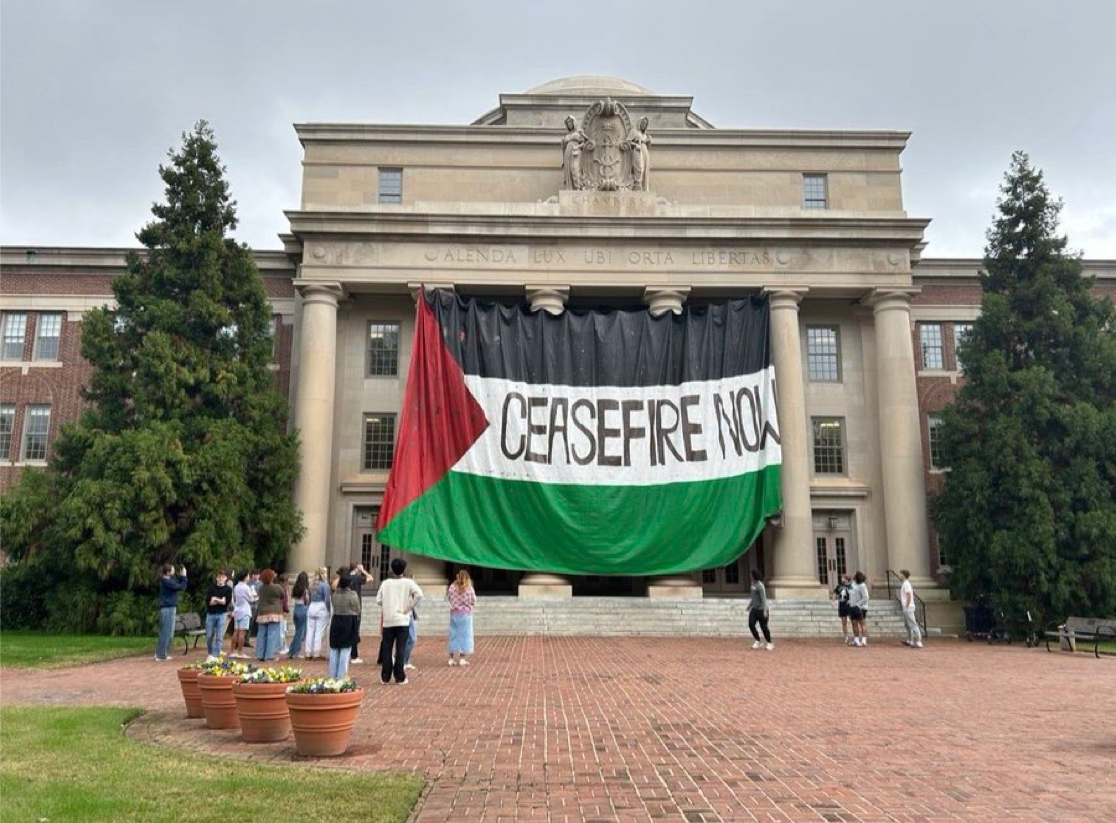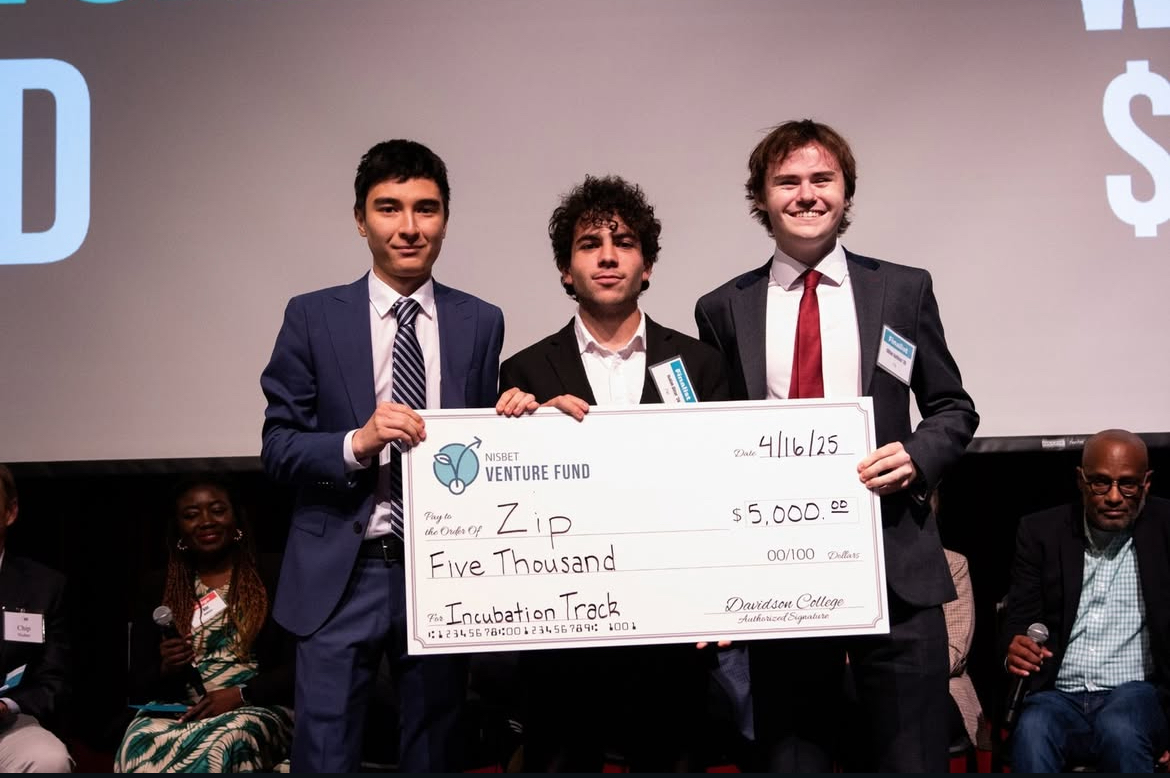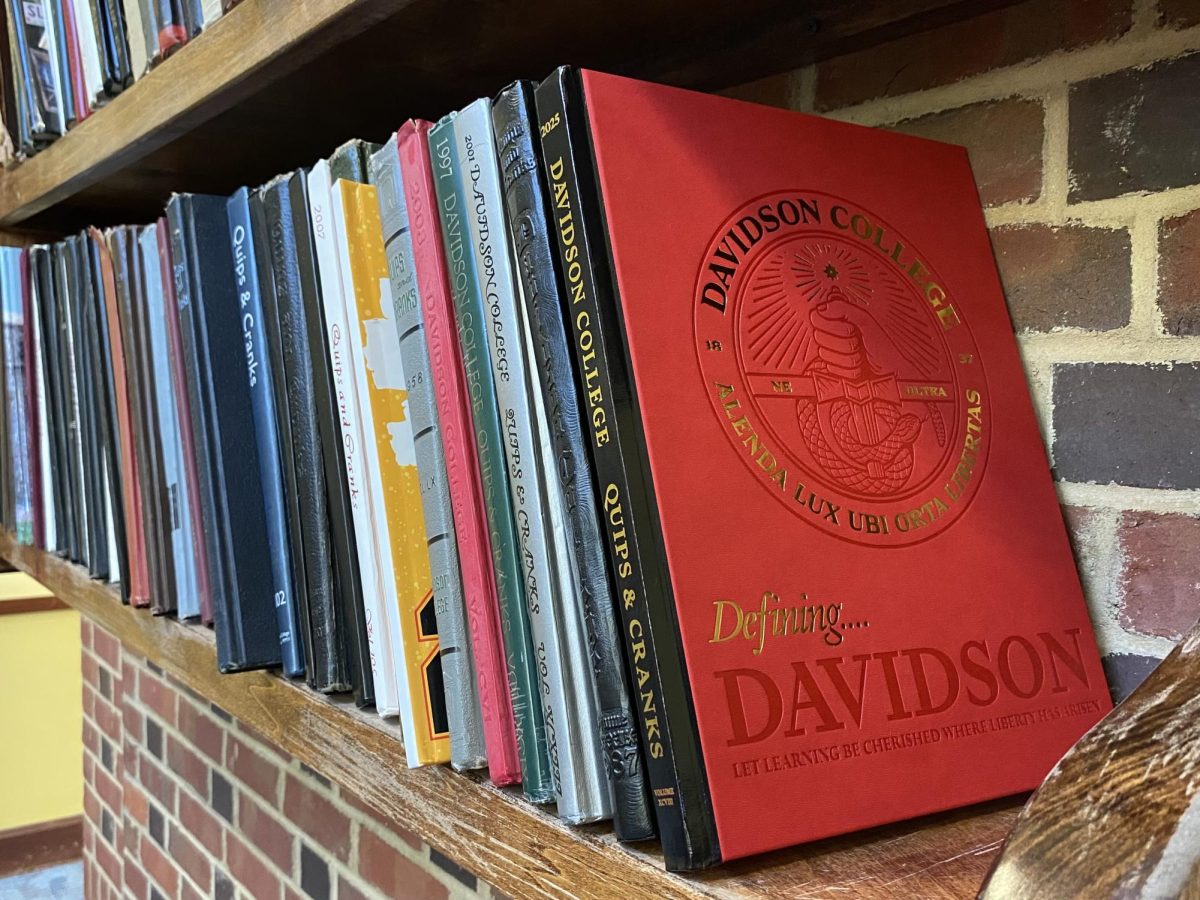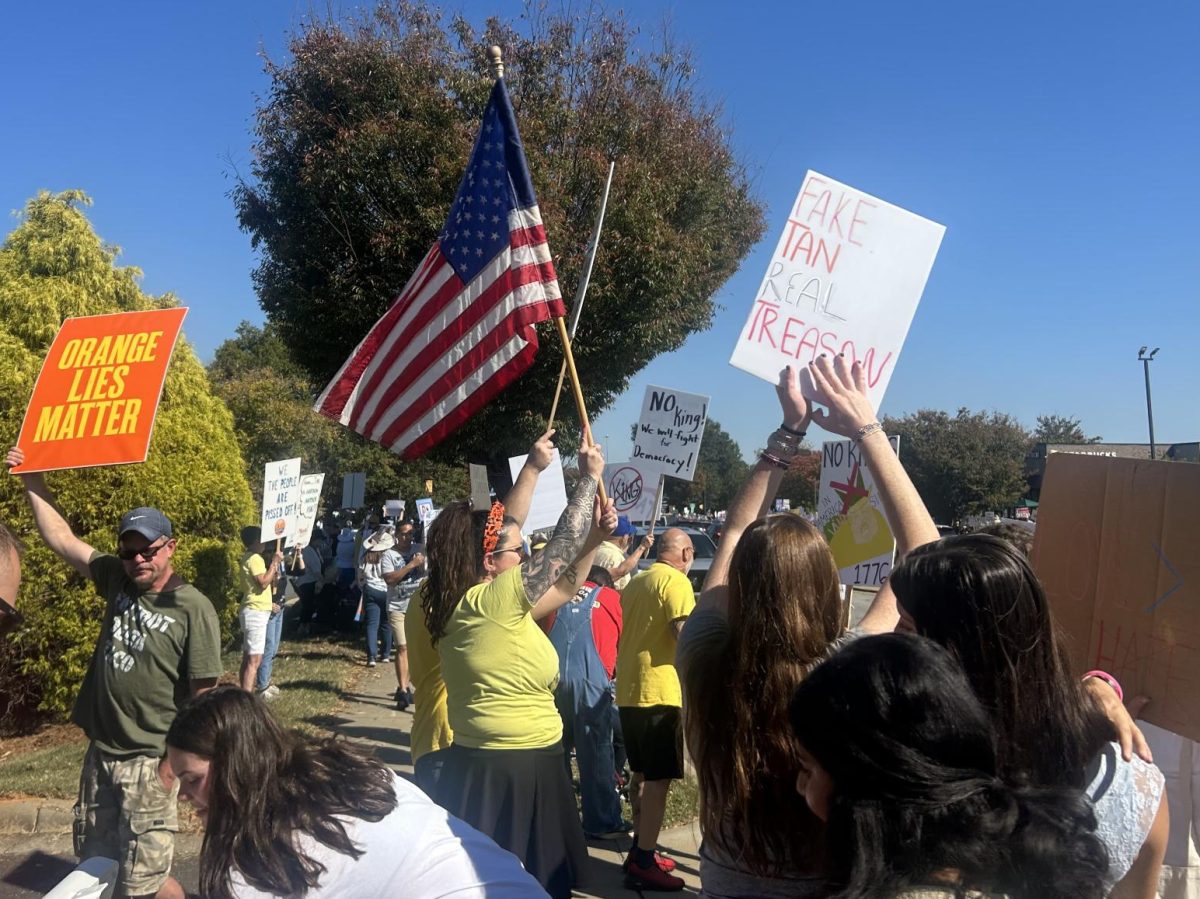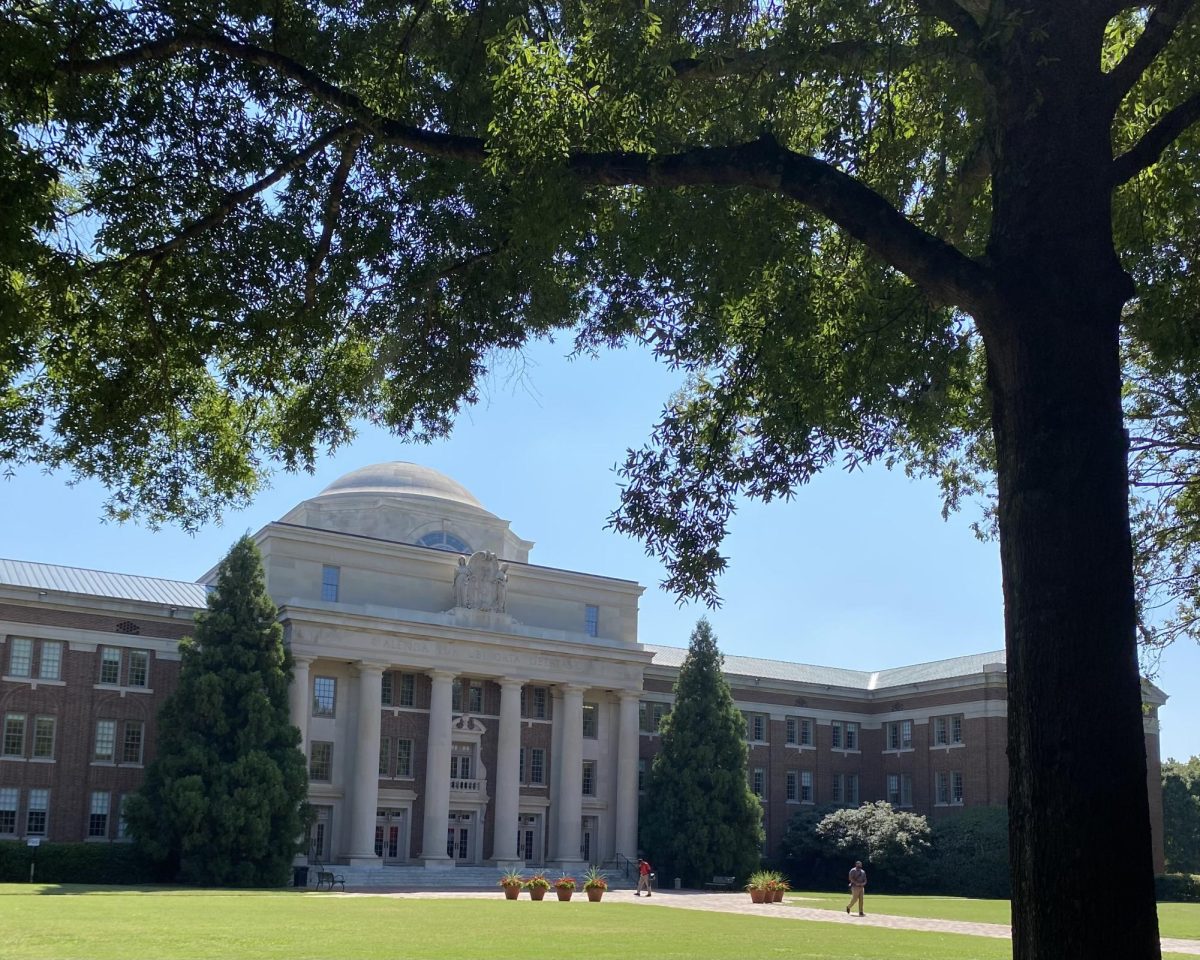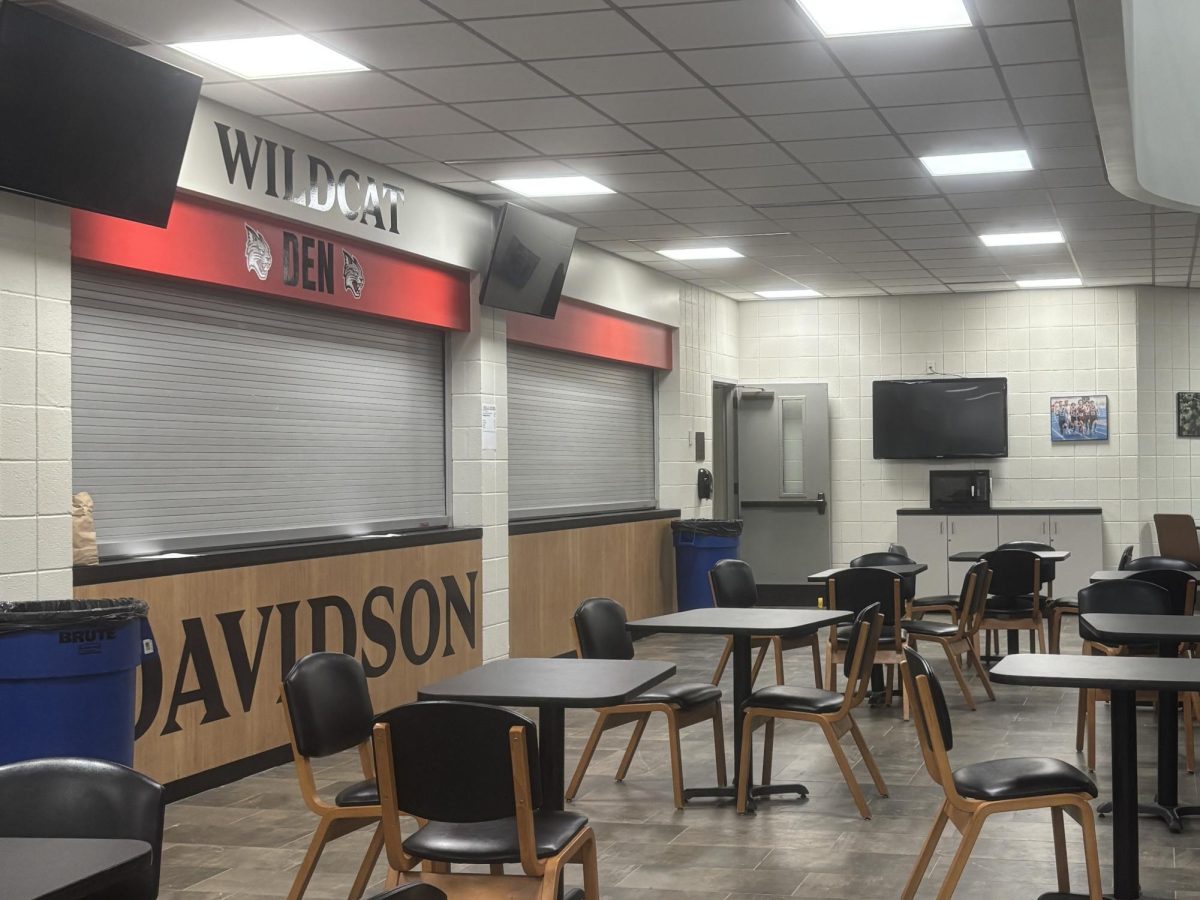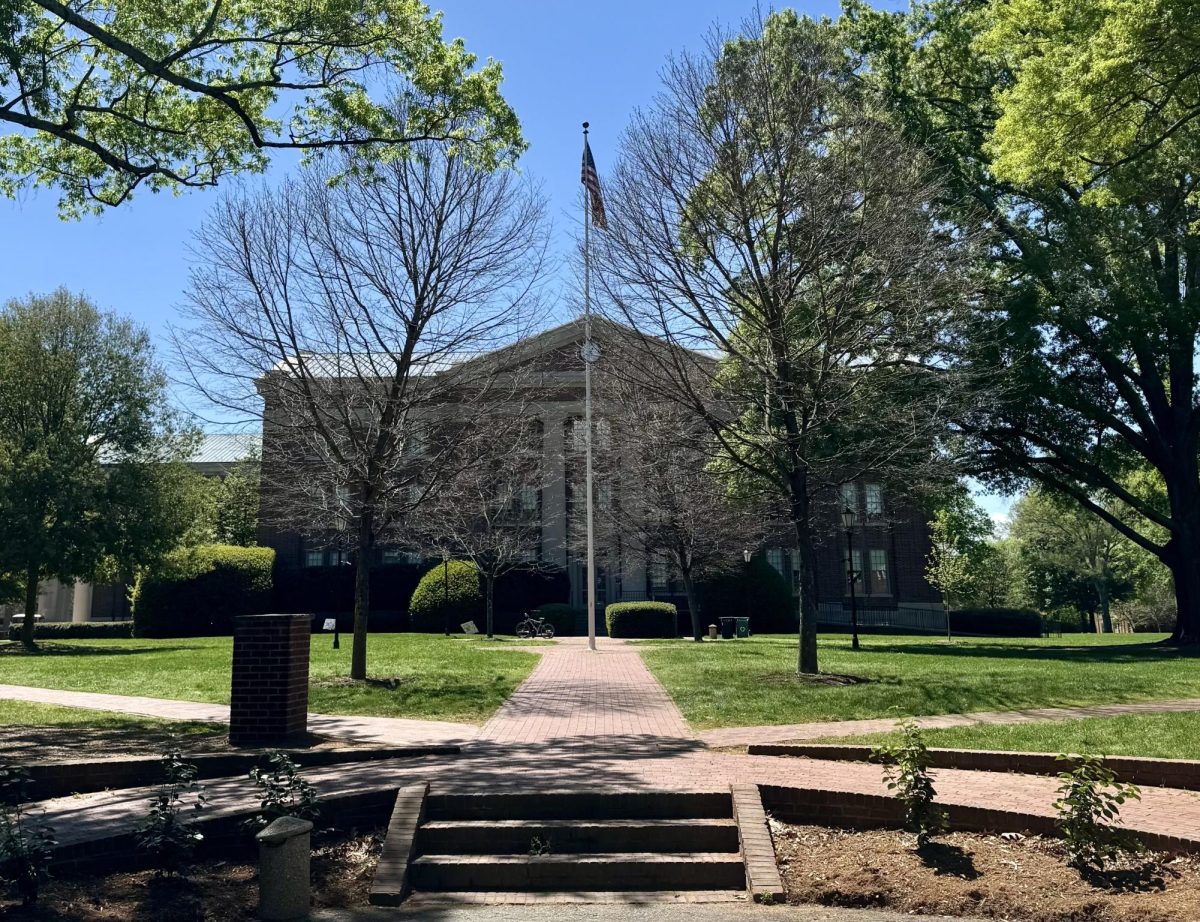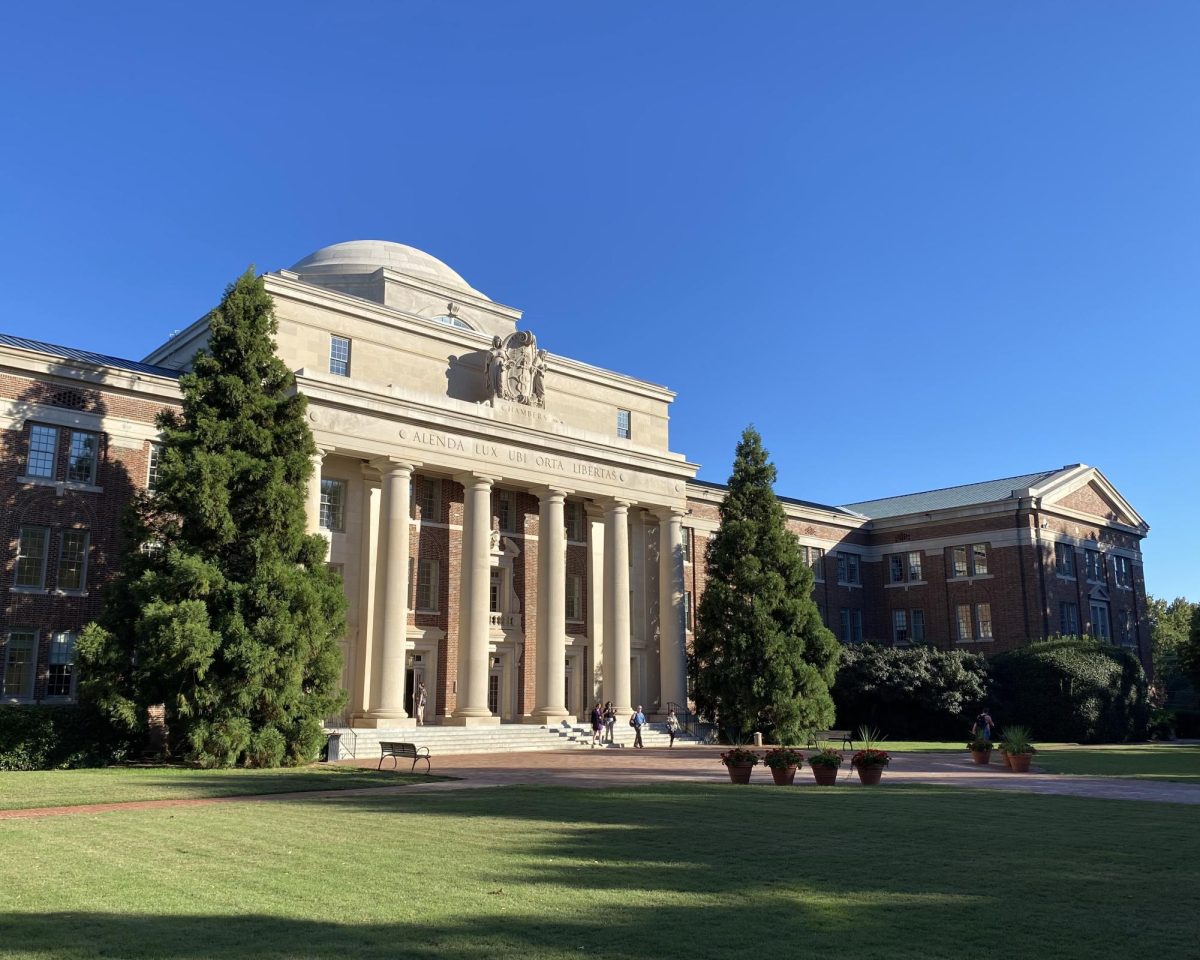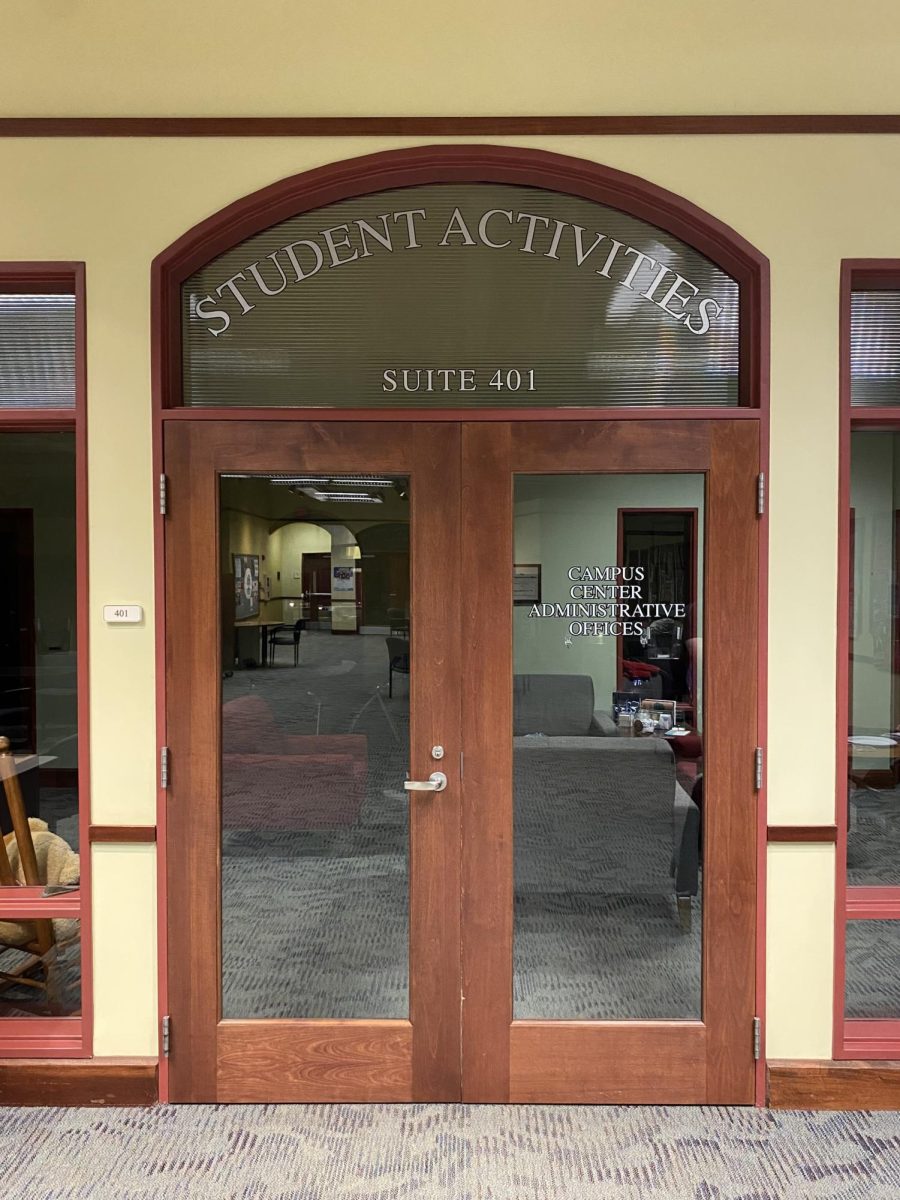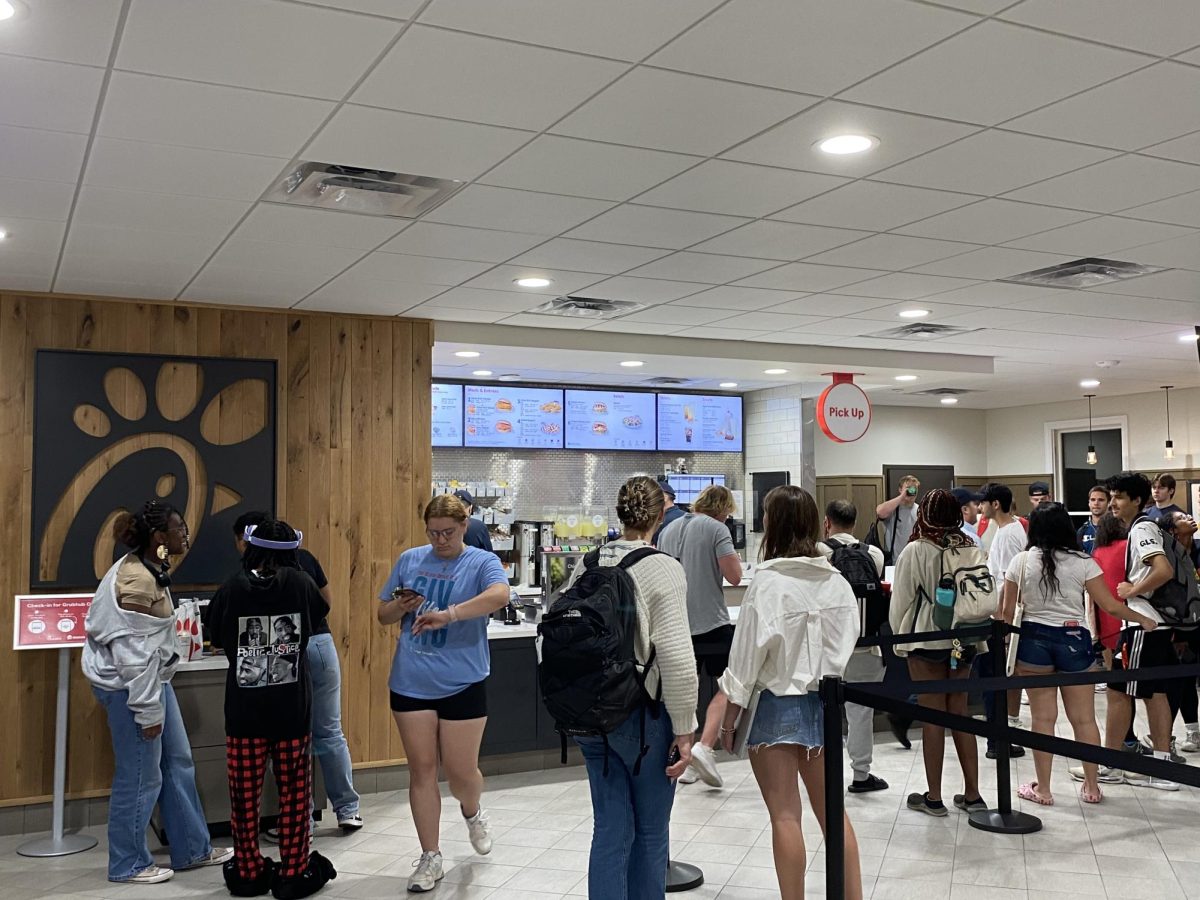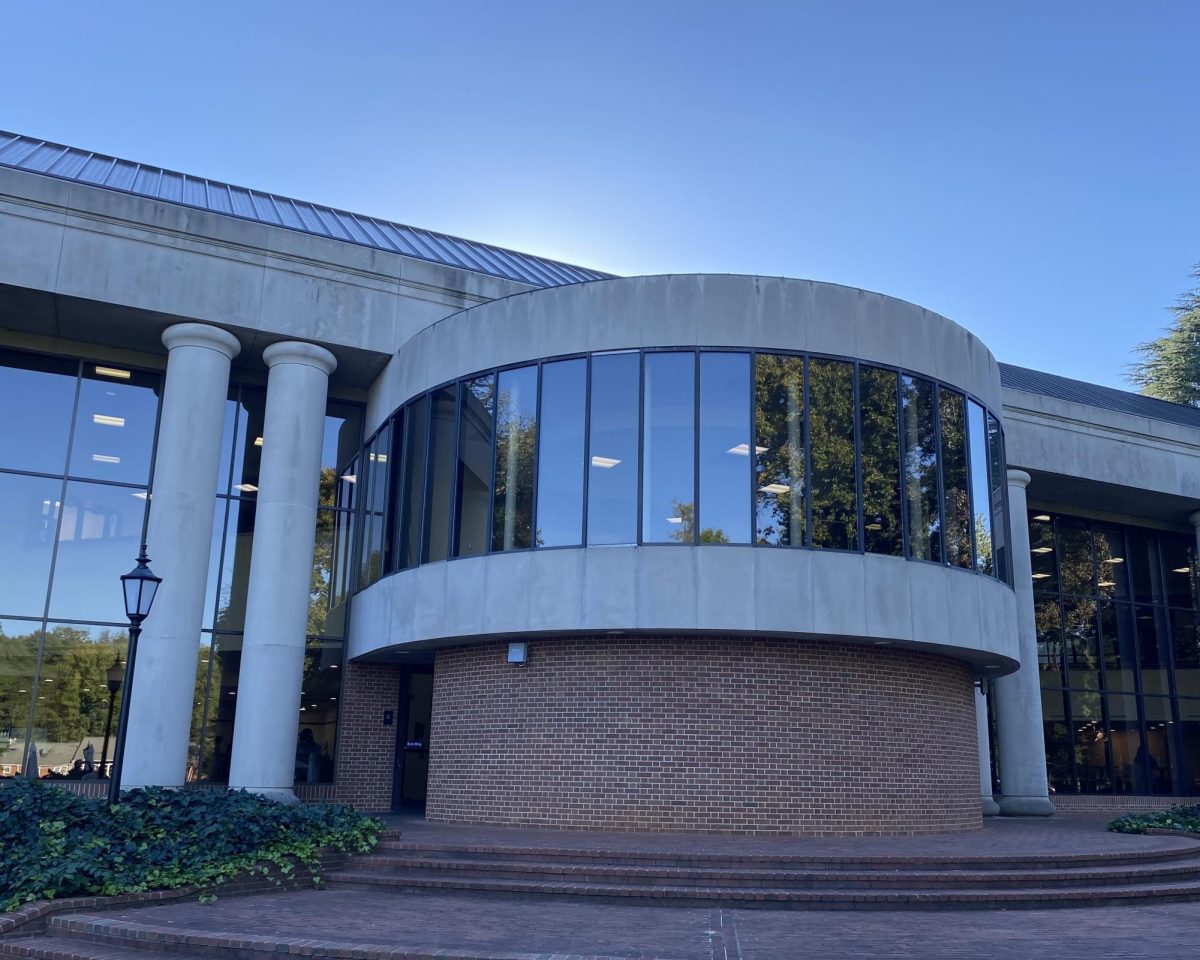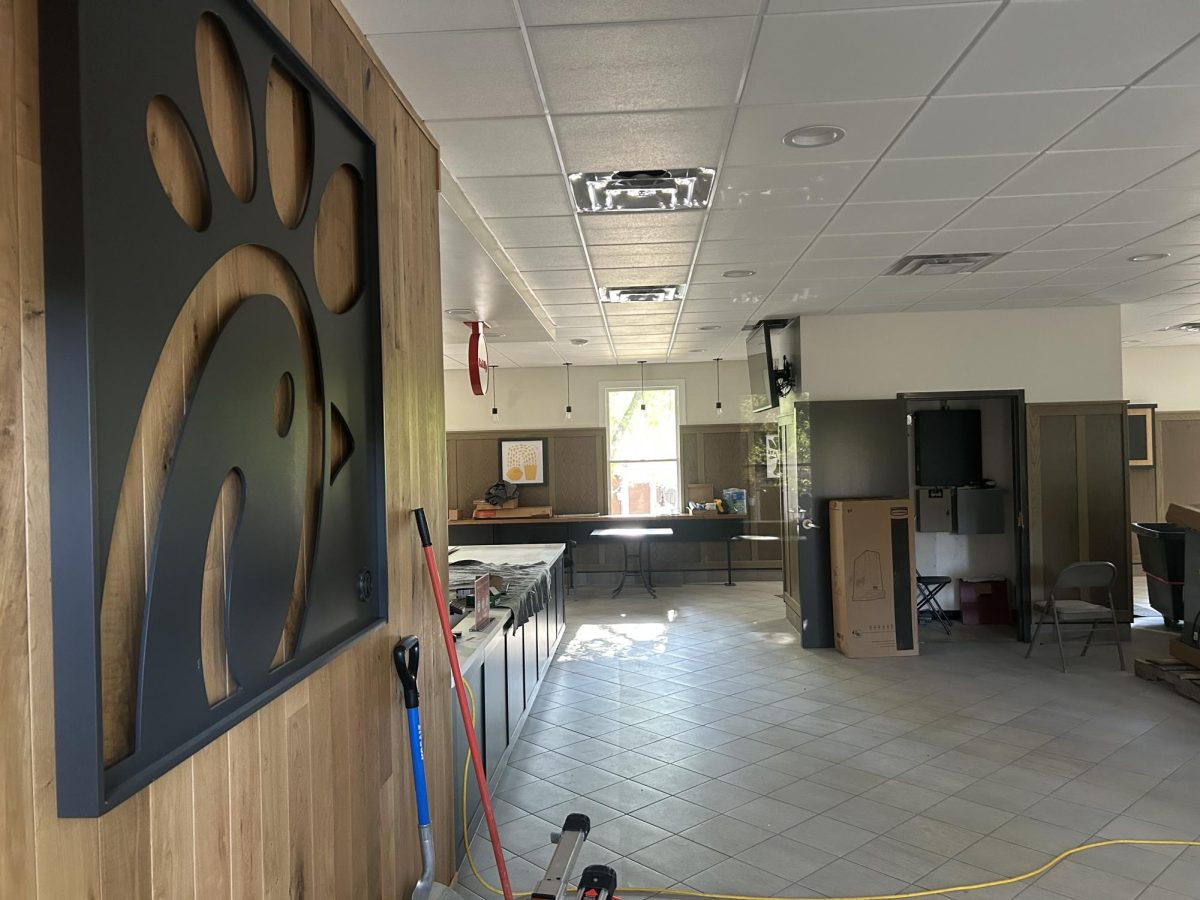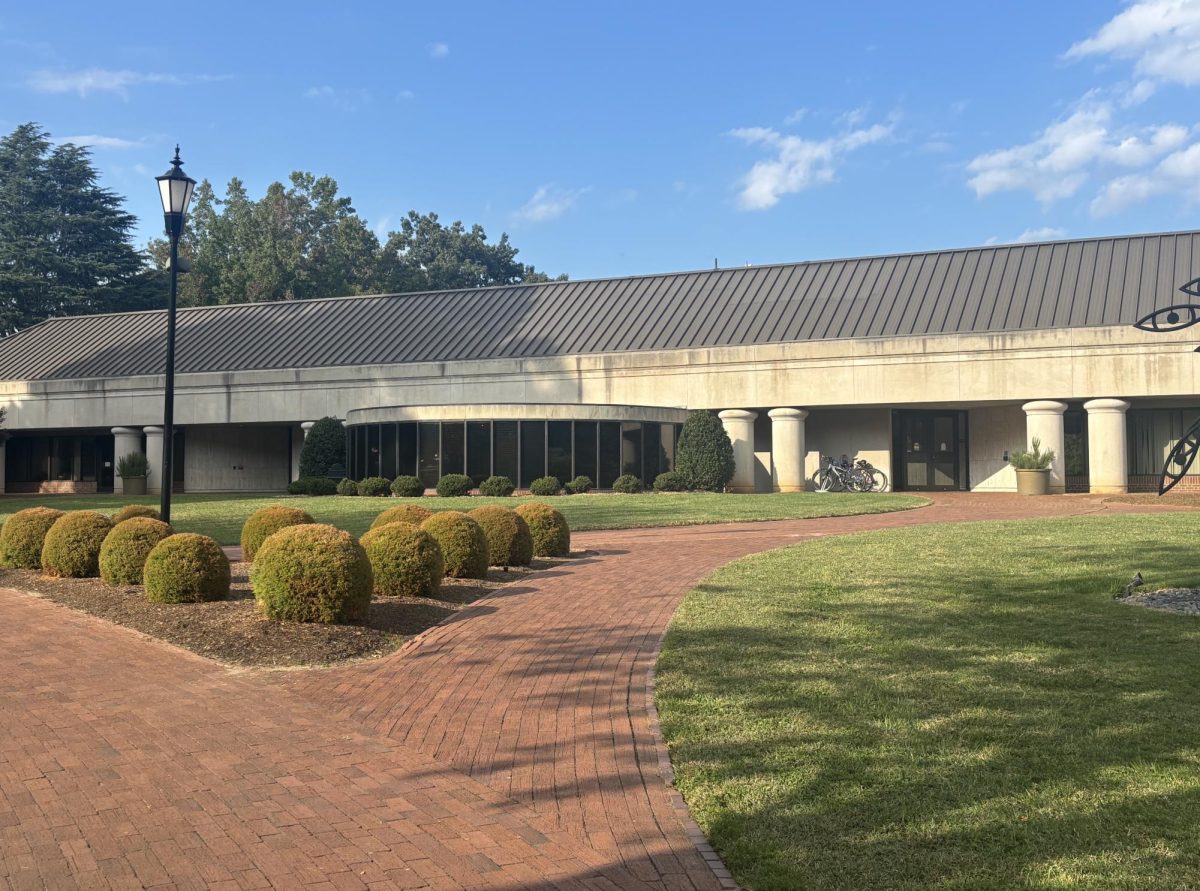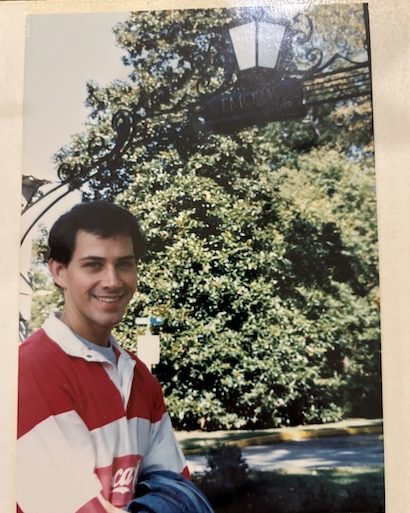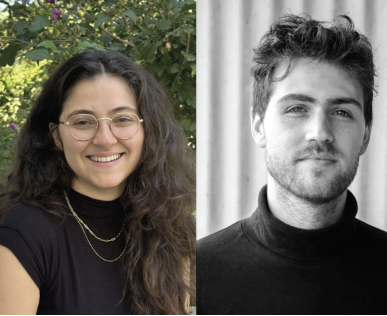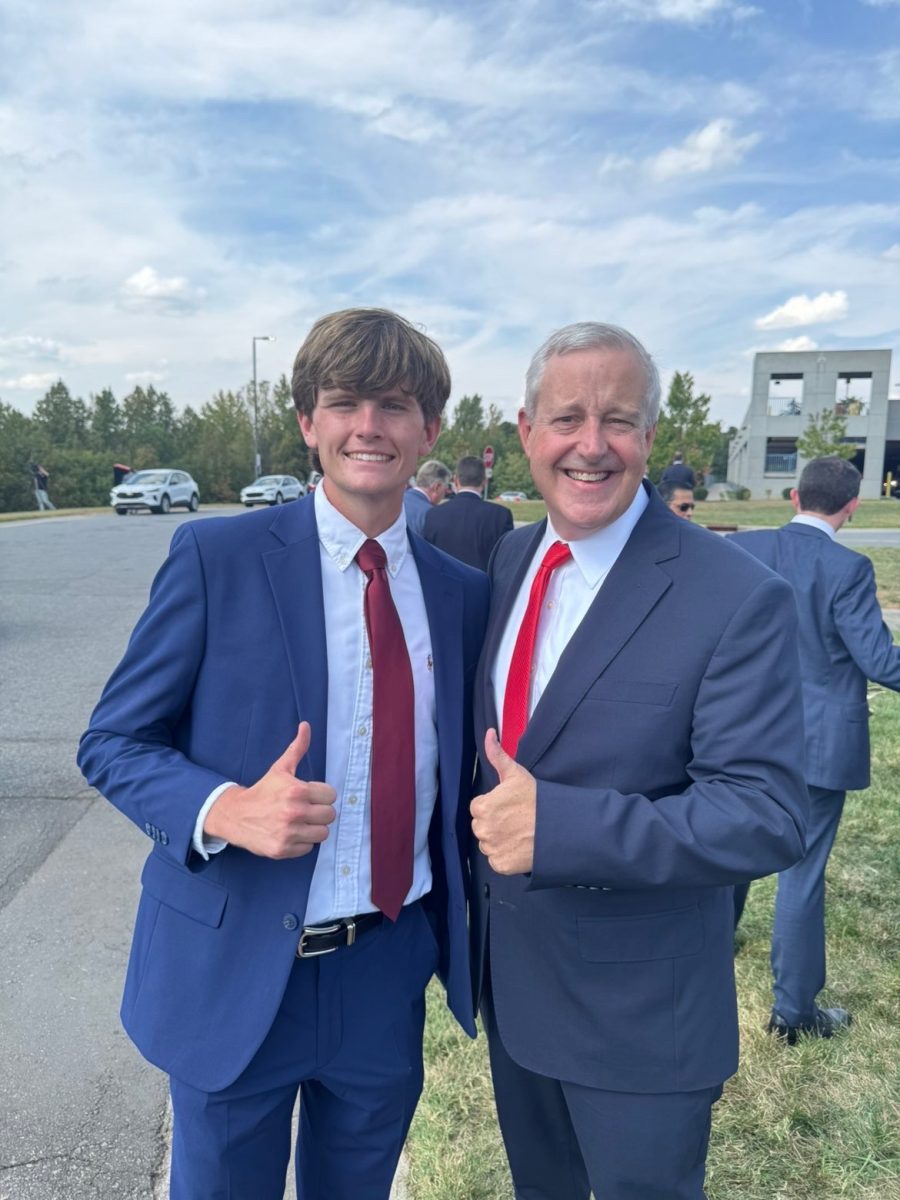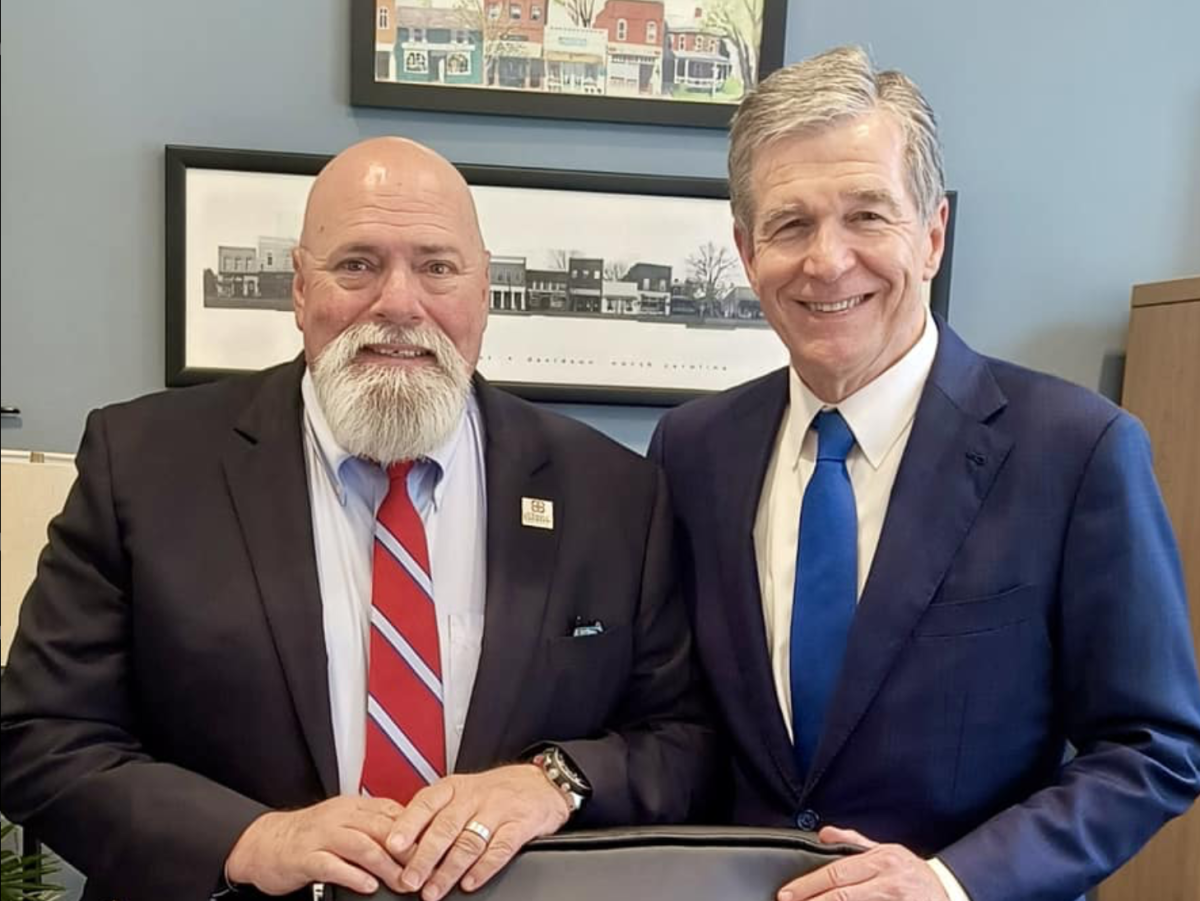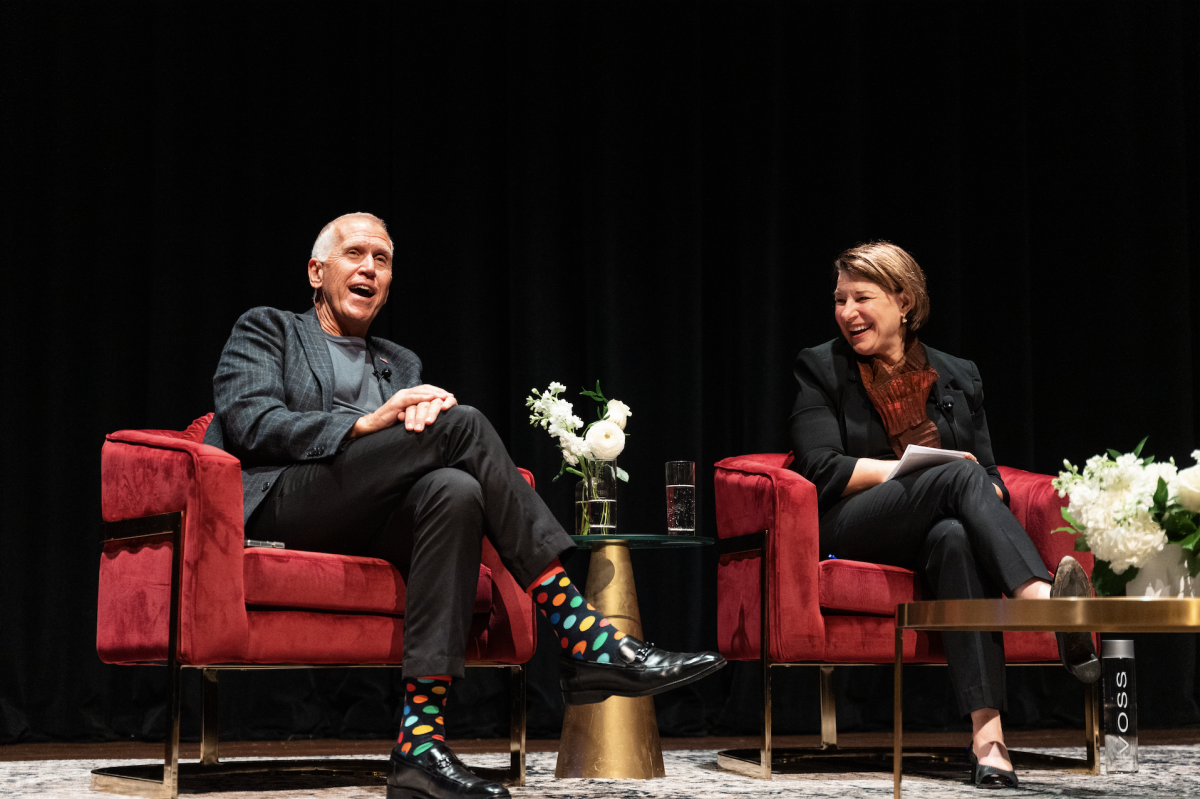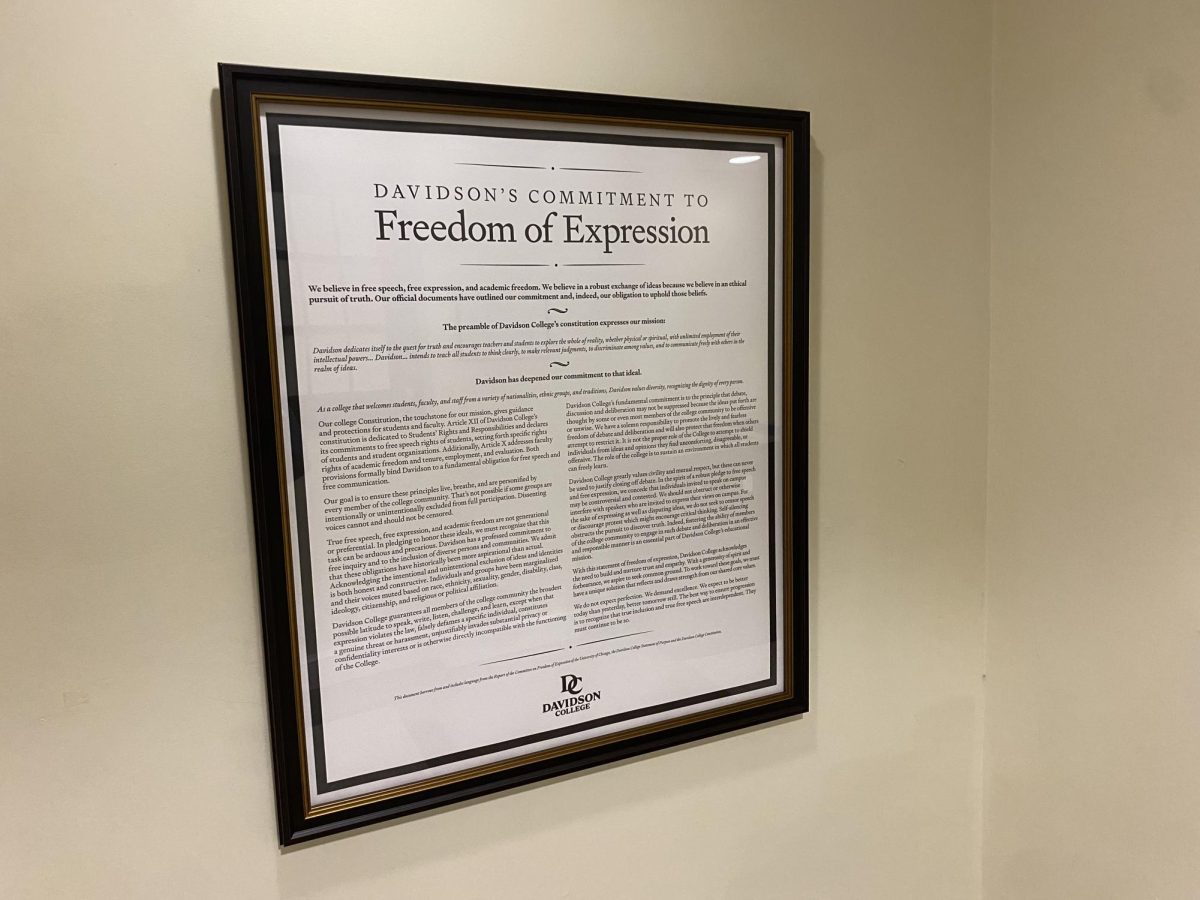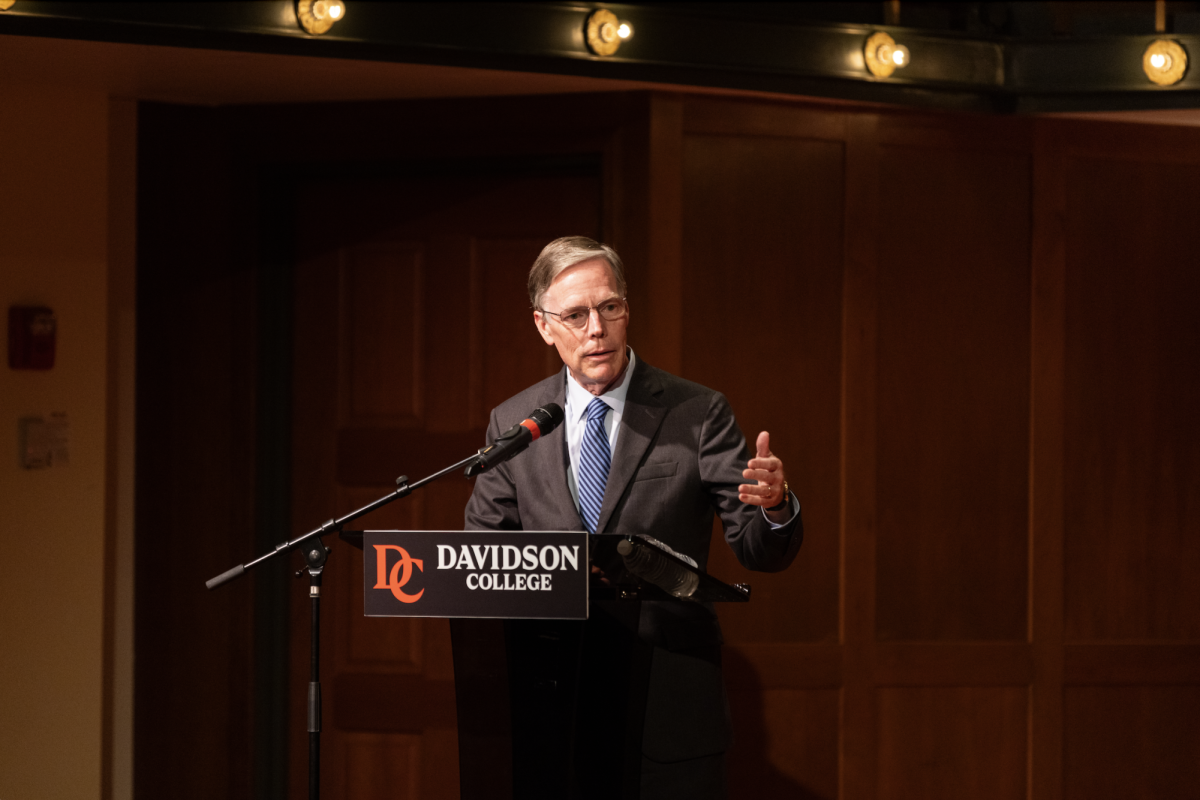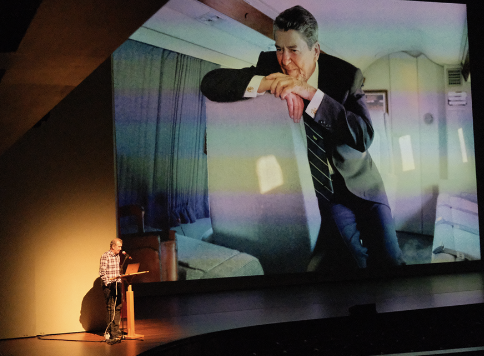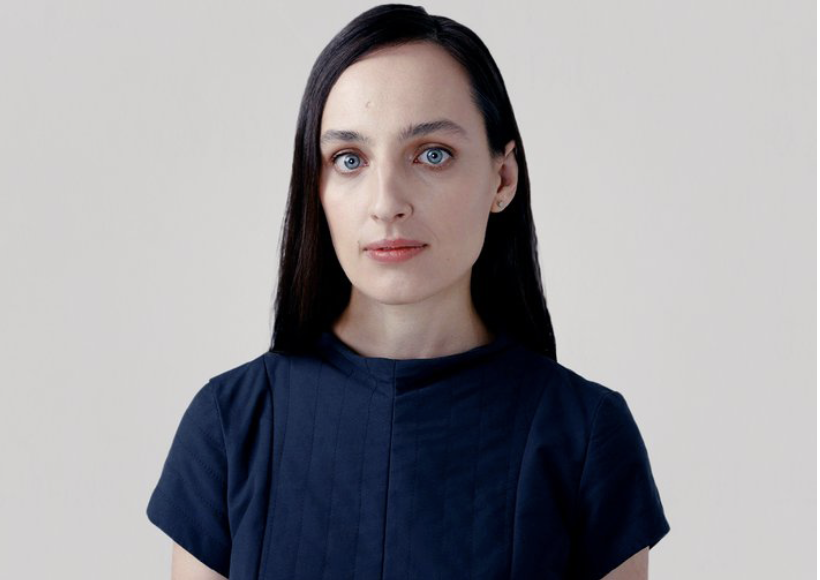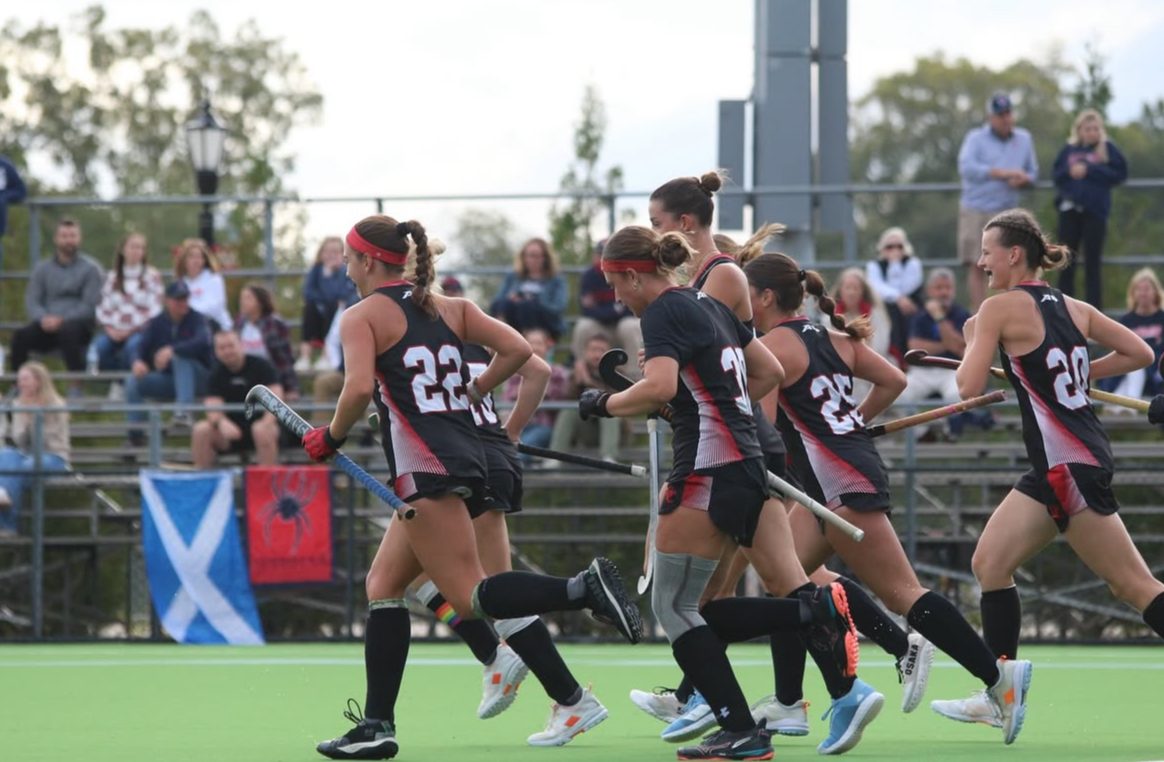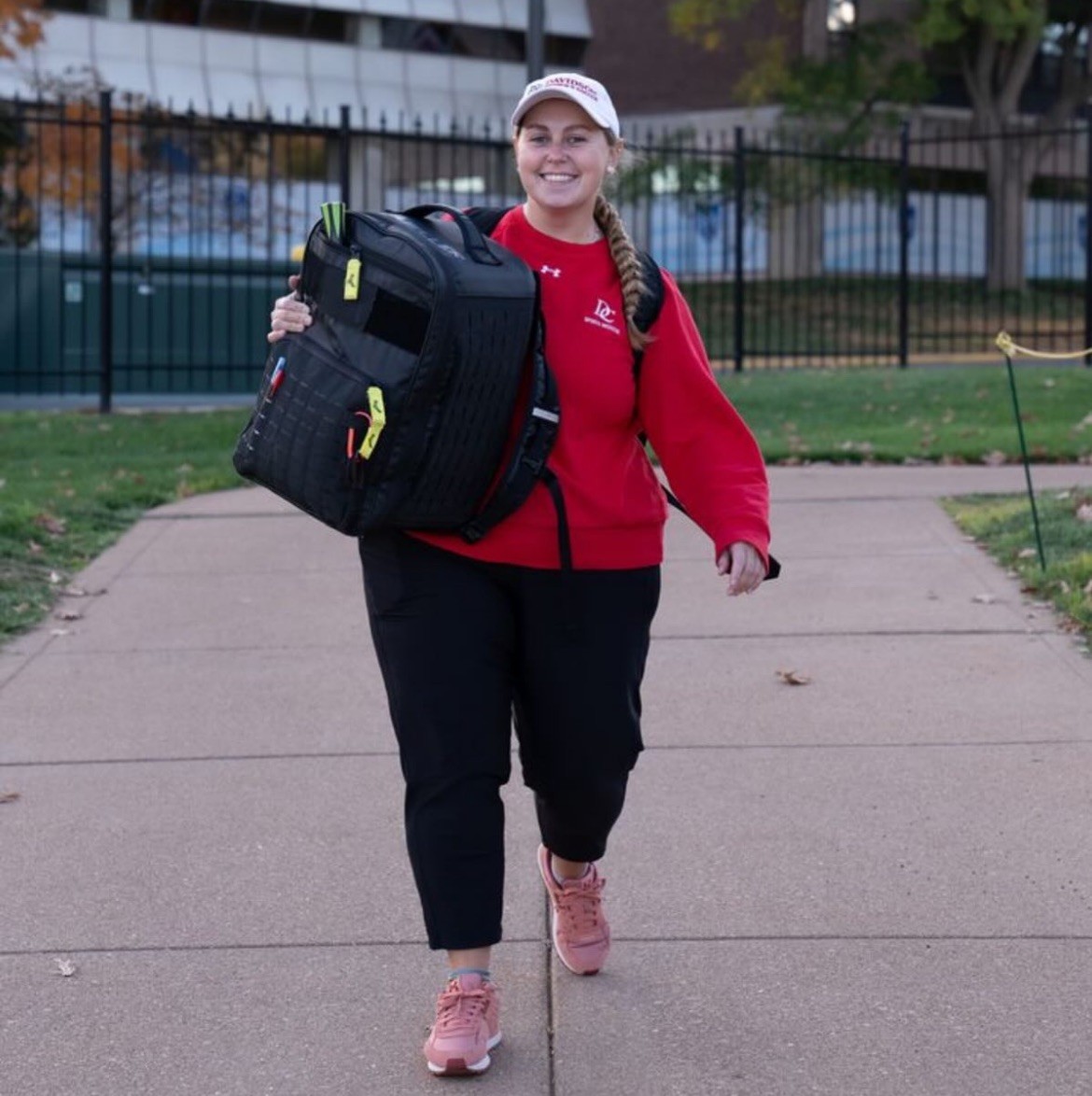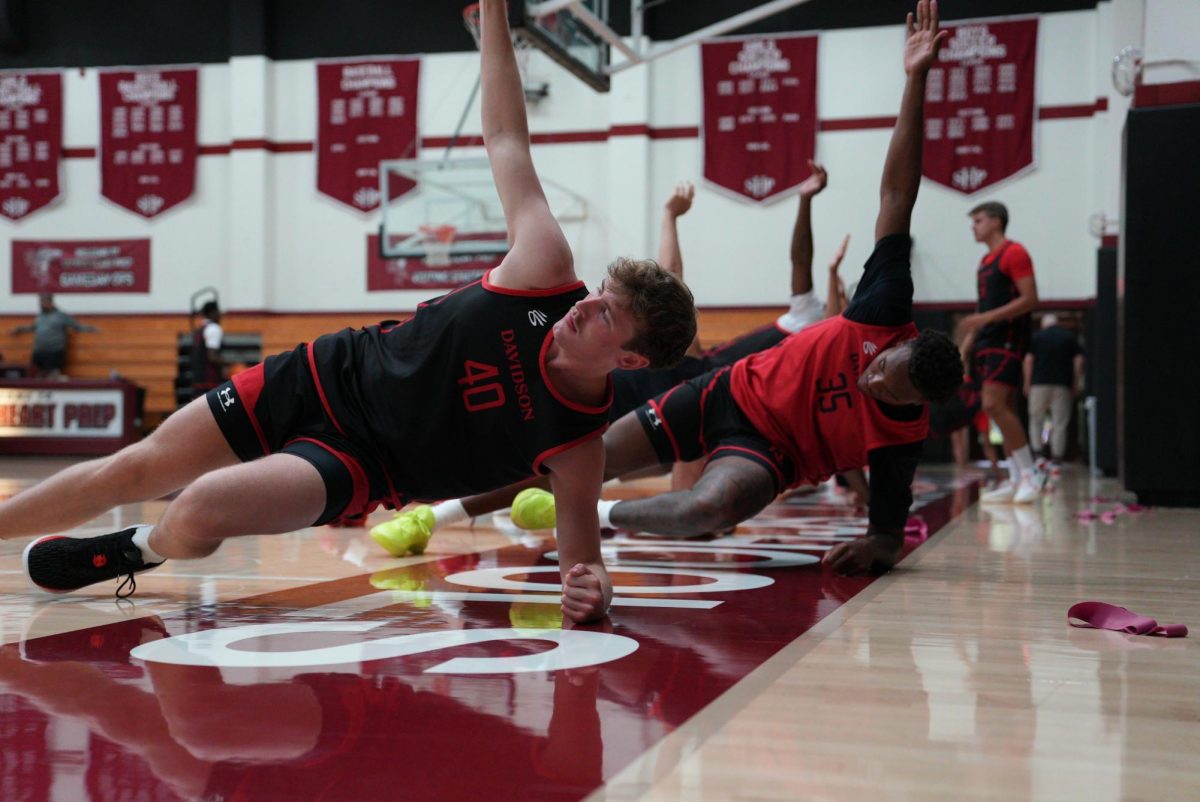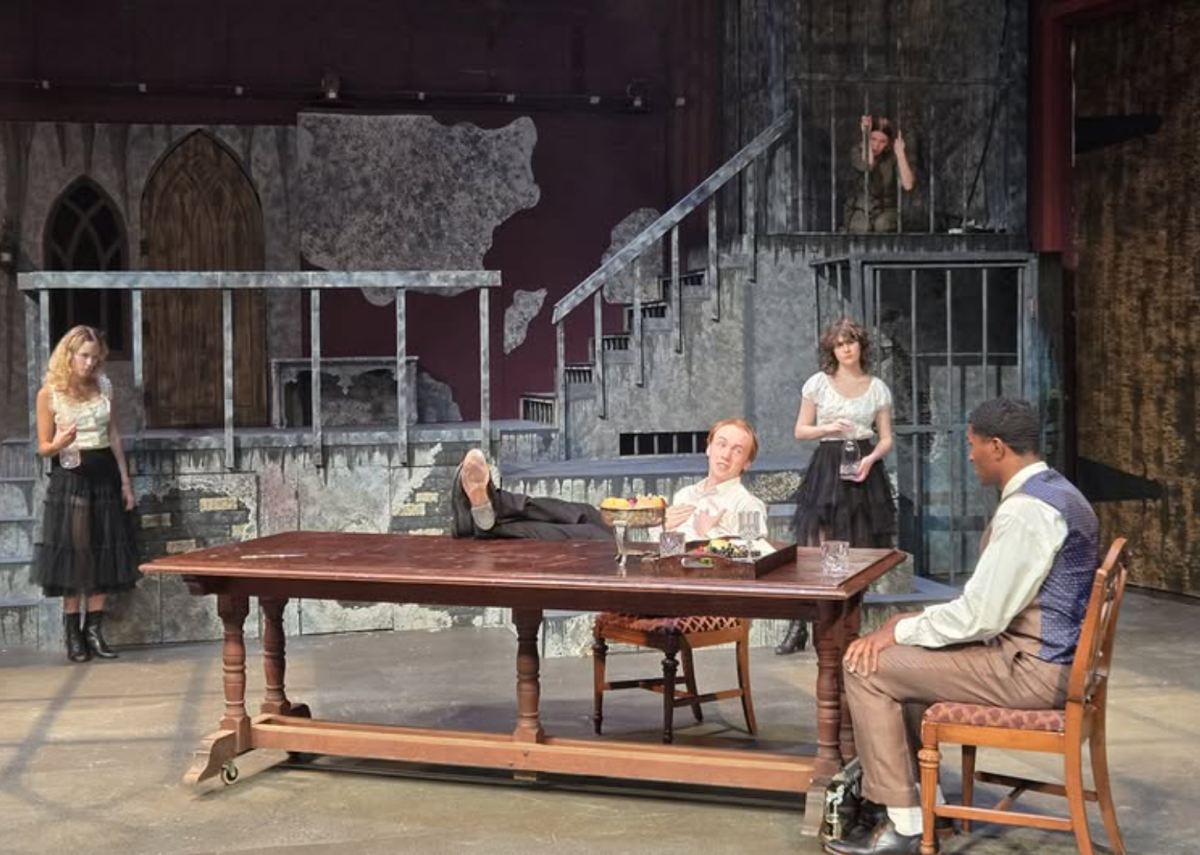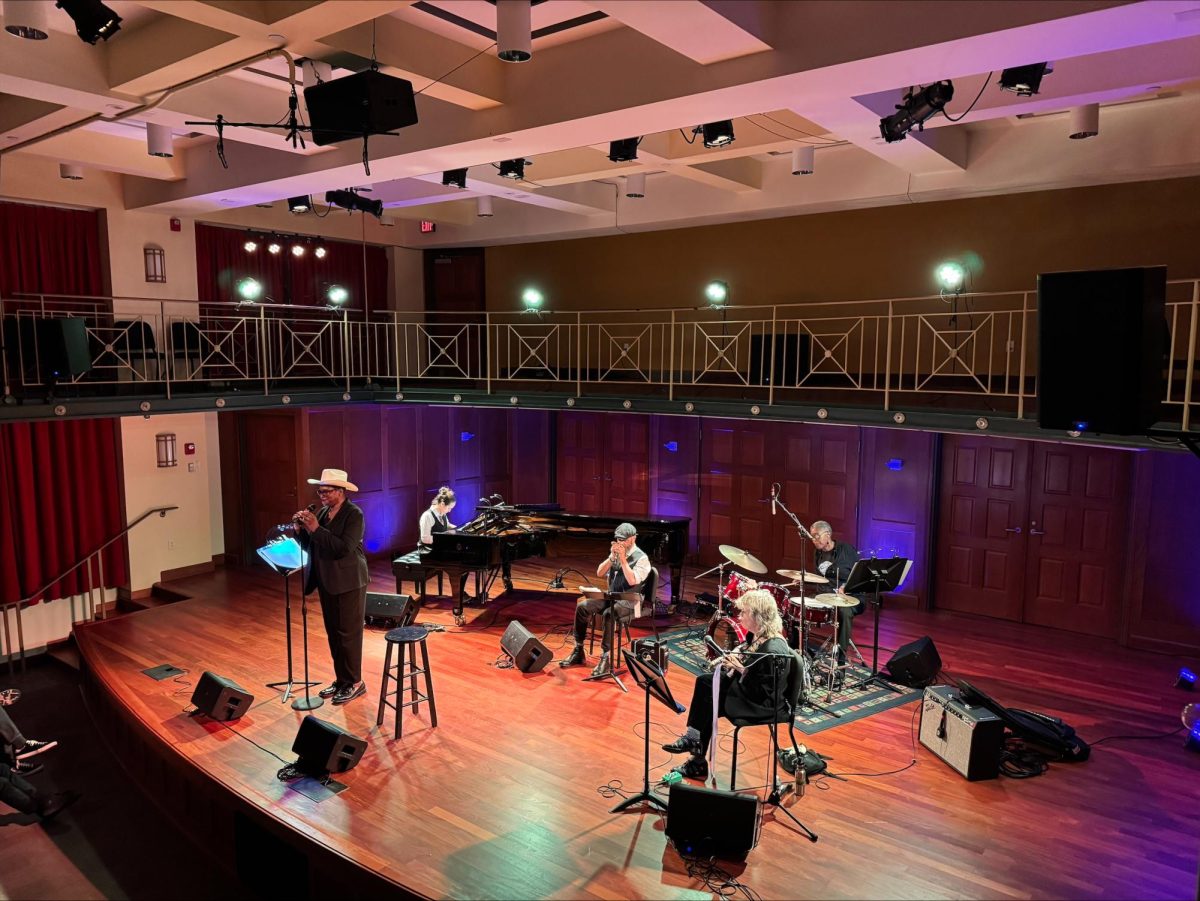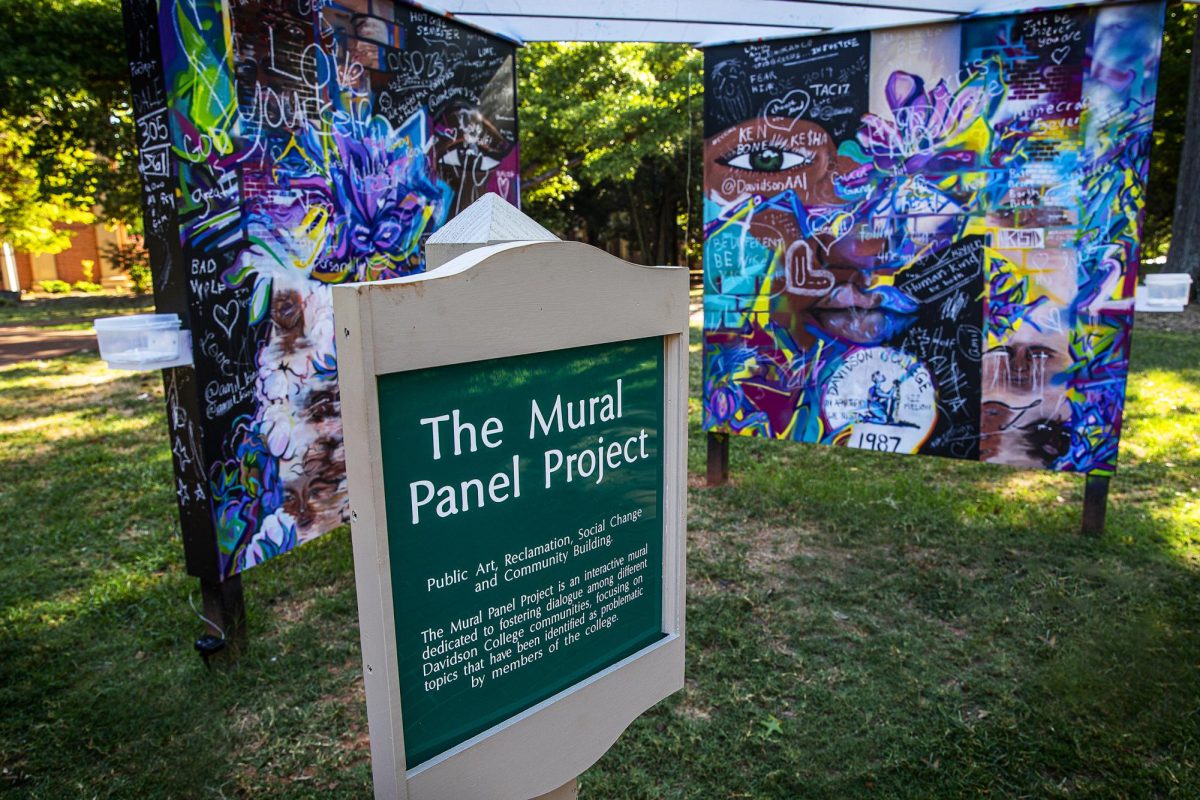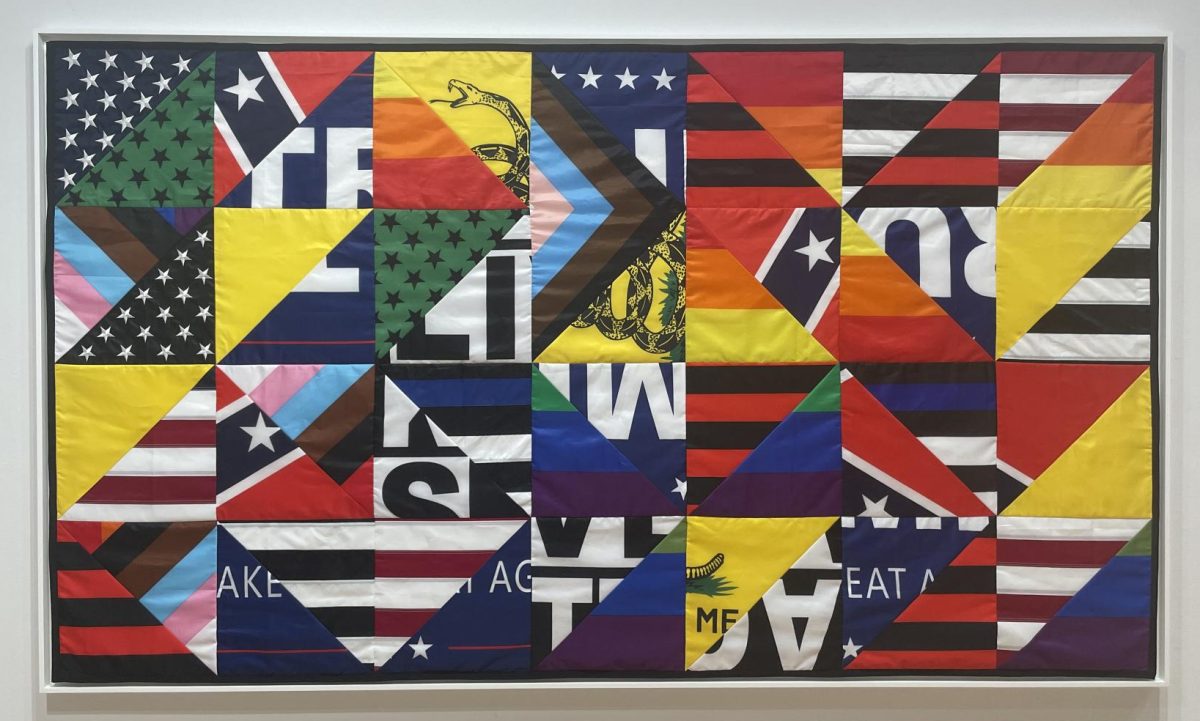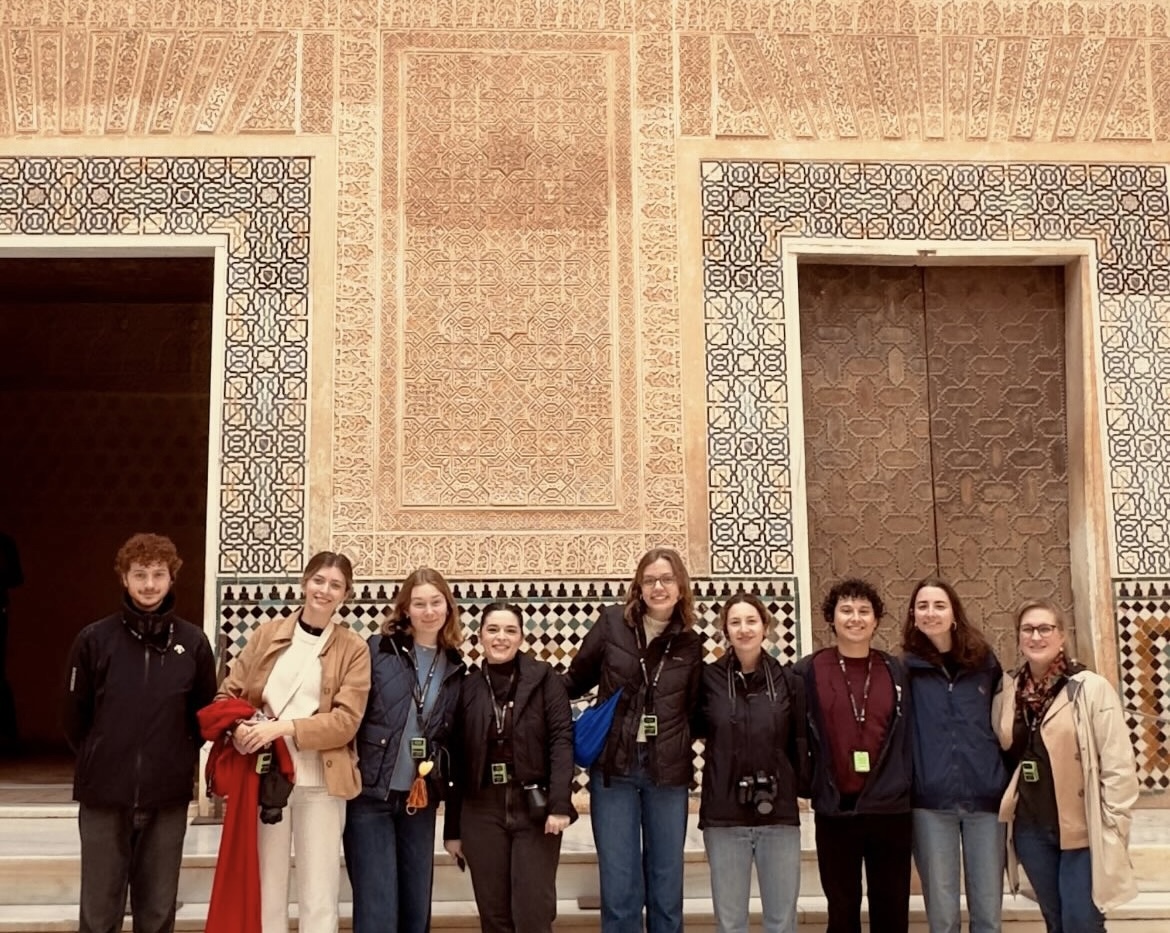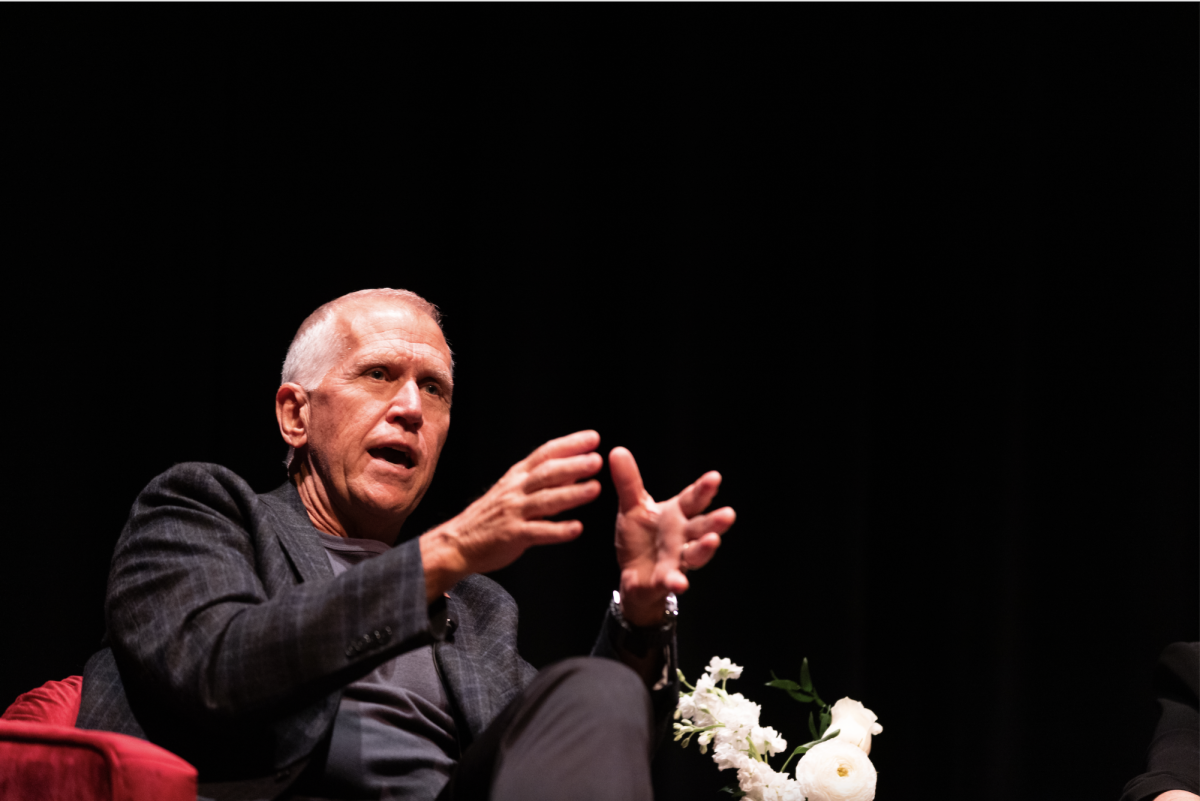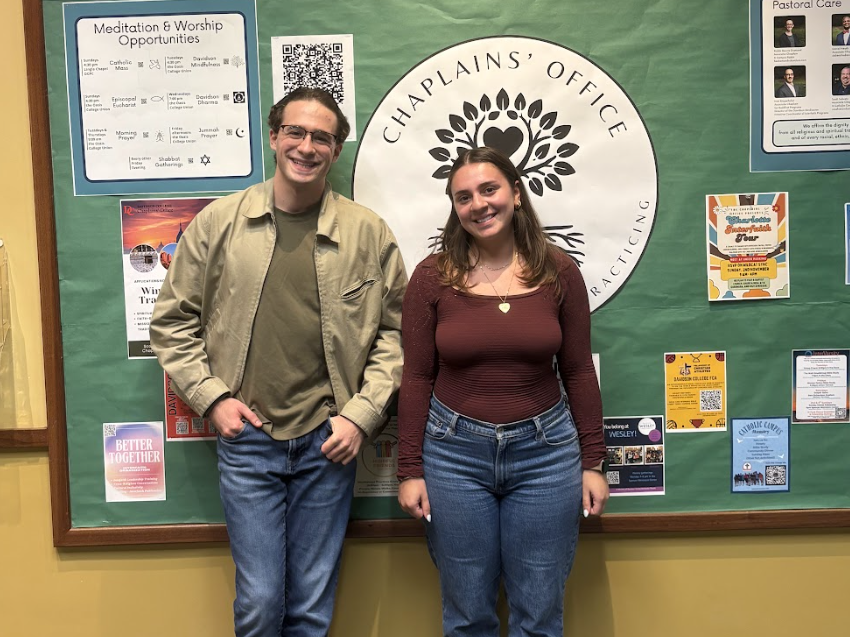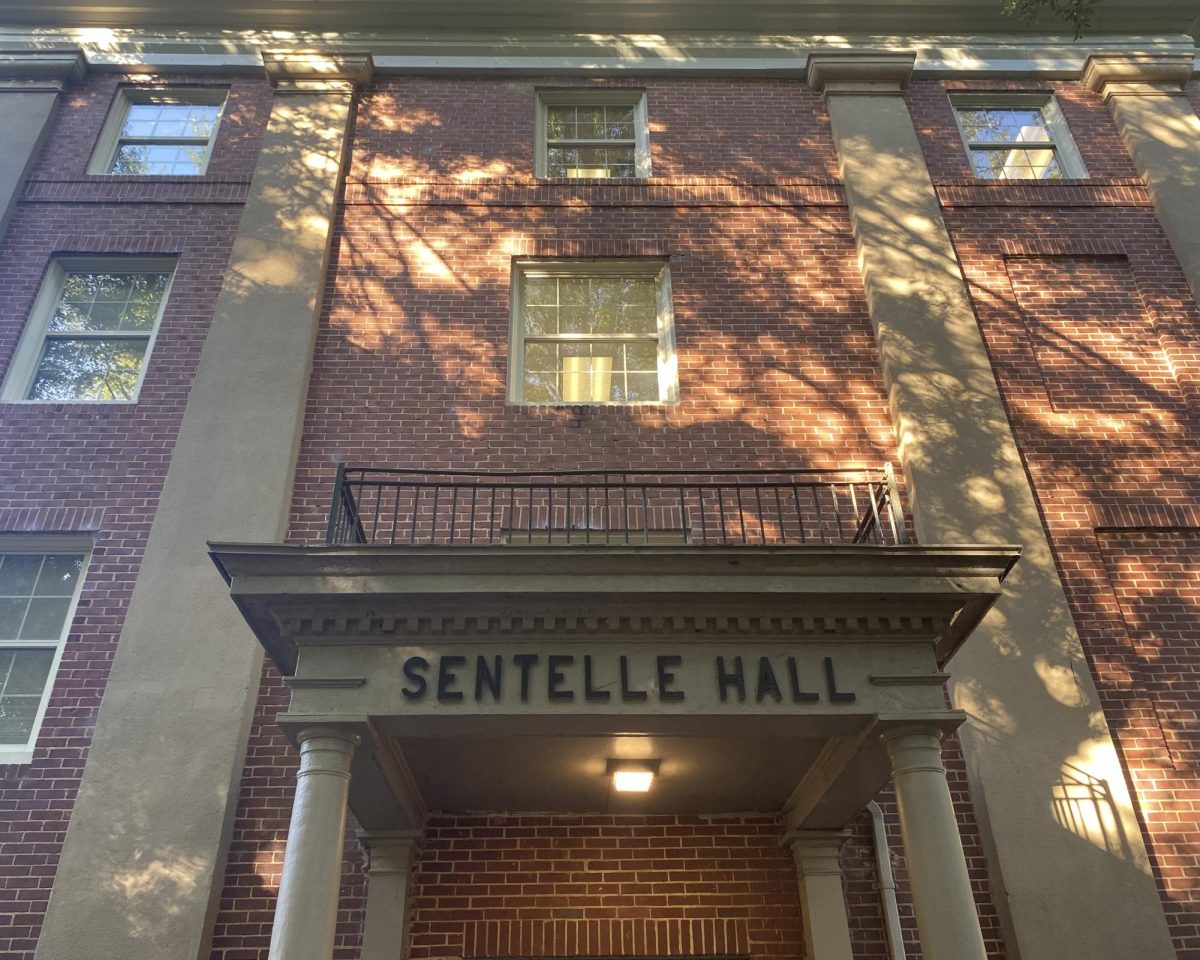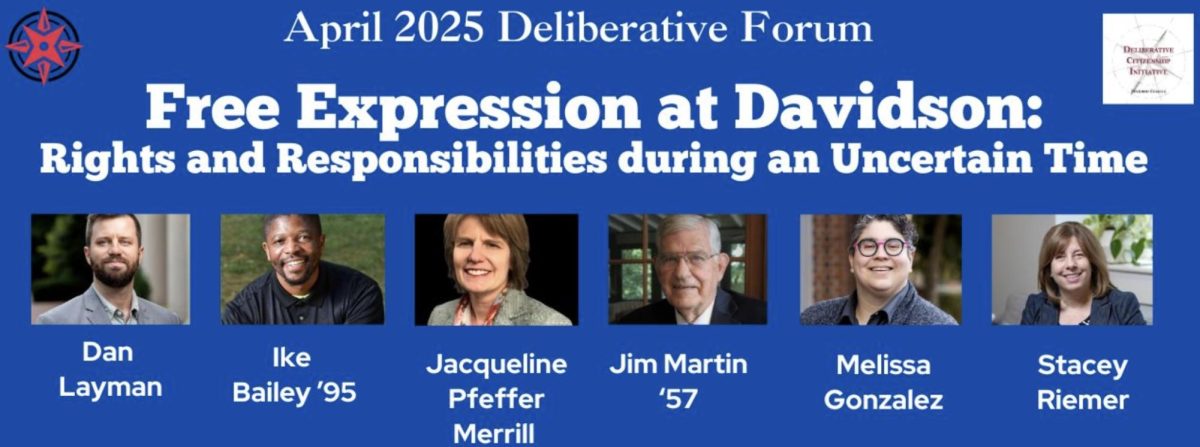As the academic year draws to a close, the Lilly Family Gallery hosted one final deliberative forum, put on by the Deliberate Citizenship Initiative (DCI), titled “Free Expression at Davidson: Rights and Responsibilities during an Uncertain Time.” This event was the final program held in the Gallery before upcoming library renovations and comes at a time when free speech on college campuses is under fire.
The forum was sparked by recent events, including Davidson’s chapter of Young Americans for Freedom disseminating pro-Israeli pamphlets on campus and a number of moves made by the Trump administration, such as the arrest of a Tufts University student after their op-ed was published in The Tufts Daily. The event was designed as both a speaker series and group discussion, focused on freedom of expression on Davidson’s campus and the national stage. The organizers hoped to foster productive conversations that both sides of the political divide could contribute to.
Associate Professor of Political Science and faculty director of the DCI Dr. Graham Bullock co-hosted the event, which took place on April 23, and gave introductions for each of the six speakers. In his initial remarks, Bullock’s stance on freedom of expression was clear: “For us at the DCI in particular, we see free expression as a necessary condition for robust democracies and healthy institutions of higher learning.” However, he claimed that more needed to be done. “It’s not just people freely making speeches in the public square, but also respectfully engaging with each other […] we need deliberative citizens.”
After Bullock’s comments, speakers were invited up one at a time. Each was allotted roughly six minutes to express their own thoughts on the topic, and all six speakers brought their own unique perspective.
Associate Professor of Hispanic Studies and Core Faculty in Gender & Sexuality Studies Dr. Melissa González went first, emphasizing that her motivation for accepting freedom of expression stems from the innate value of every single human being. “The reason that I value freedom of expression is because one of my core values is respecting the bodily and intellectual autonomy of all other people,” she stated. “Feelings are not facts, but feelings absolutely impact and shape how we perceive and understand facts and information.”
It is important to contextualize González’s words within Davidson’s own Statement of Purpose, which includes a section that reads, “As a college that welcomes students, faculty, and staff from a variety of nationalities, ethnic groups, and traditions, Davidson values diversity, recognizing the dignity and worth of every person. Therefore, Davidson provides a range of opportunities for worship, civil debate, and teaching that enrich mind and spirit.”
González commented that, as of now, these statements are not indicative of real life. “Unfortunately, the more you study and learn about the world, the more you see how very far we are from living [the Statement of Purpose].”
Shortly after, Associate Professor of Philosophy Dr. Daniel Layman took the stage to argue that campuses should opt for a “classical liberal position,” meaning that universities should never censor the expression of any moral, political, scientific or theological idea. “Accepting [the classical liberal position] means accepting that speech can and will do harm and that bad ideas will sometimes win. But to the extent that we embrace this position, we have a real shot at governing ourselves, and a college learning to govern ourselves as a free community of equals. And that’s a great good, I think, that’s well worth it.”
Former Governor of North Carolina Dr. Jim Martin ‘57 advocated for intellectual and institutional neutrality. Starting his time by proudly proclaiming that his pronouns are “y’all and y’all,” Martin spoke on the work that he feels still needs to be done on Davidson’s campus with regards to freedom of expression. “Davidson needs an active, affirmative commitment to recruit learned faculty with academic diversity. Fields of study with competing interpretations of themes thrive on diversity of relevant professional and ideological views. And until this is done, conservative students will never feel included in a partisan sanctuary.”
Professor of the Practice in Communication Studies Issac Bailey ‘95 led what resembled a TED Talk. Walking around the stage, locking eyes with spectators and emphasizing the power that each individual voice has, Bailey urged the audience to be brave in the face of opposition. “If you don’t use your voice, guess what? The world misses something extremely important that only you can provide. […] And yet, for a lot of people, we shrink and cower. Every single time that something gets a little tough or challenging, we forget that we are literally one in eight billion. Every time things get a little offensive, somebody disagrees passionately with you and scares you, we forget the one in eight billion.”
Director of the Campus Free Expression Project Dr. Jacqueline Pfeffer Merrill and interim Vice President for Student Life & Dean of Students Dr. Stacey Riemer both took a more practical, general approach to their allotted time. Pfeffer Merrill described the four distinct zones where speech and expression take place on college campuses (classrooms, clubs, dorms and other communal spaces), while Riemer detailed Davidson’s Code of Responsibility as it applies to freedom of expression.
During the second half of the forum, the room split up into smaller discussion groups, each staffed with either a speaker or DCI fellow. The discussion facilitated smaller conversations that focused on specific questions involving free speech on college campuses. After an hour, Bullock returned to the stage to thank the audience for coming and encourage further deliberation before the end of the semester.
González believed the event was a success. “I think it went very well overall, especially given the rushed preparation. We knew it was going to be a tough time to recruit lots of students, and I wish more current students had attended, but the overall attendance was very high and there will be other opportunities for students to engage,” she stated. “We sometimes have wildly different perspectives and beliefs, but focusing on active listening and understanding each other is the best way to build a community focused on working toward a shared purpose—which is what living our College’s Statement of Purpose requires.”
Though there were few current students in attendance, Martin agreed that the event was worthwhile. “I’ve attended several of these sessions, and I think they’re all successful for the relatively small percentage of the community that attend. [We need to] go out and tell people about it, and maybe next time we’ll get more.”
When asked how Davidson can get more students involved in future DCI events, Martin didn’t have much to say. “I haven’t thought about that before, but one idea might be to consult with a political advisor about how they do it. You have to have promotion.”
Kenny Xu ‘19, executive director of Davidsonians for Freedom of Thought and Discourse, attended the event and appreciated how open-minded most participants were. “I thought that largely everybody was on the same page about the importance of freedom of expression,” he expressed. “Governor Martin was dynamite. He was the one who highlighted the policy issues that need to be resolved for freedom of expression to come about.”
Nonetheless, Xu was clear in his desire for some level of change to the forum structure. “The one thing I wanted more of was the opportunity to ask these speakers direct questions. That’s a huge part of the discourse process because it removes the barrier between the professor and student, and that just hasn’t happened at DCI events. So I’m going to continue to encourage that.”
González hopes that people will leave the event with a stronger grasp on what freedom of expression can mean for those attending Davidson. “I hope attendees came away with a better understanding of the complexities in play, the policies in play and some big lingering questions they will return to.”

